
A DARK HISTORY OF MODERN PHILOSOPHY
STUDIES IN CONTINENTAL THOUGHT
John Sallis, editor
Consulting Editors
Robert Bernasconi
John D. Caputo
David Carr
Edward S. Casey
David Farrell Krell
Lenore Langsdorf
James Risser
Dennis J. Schmidt
Calvin O. Schrag
Charles E. Scott
Daniela Vallega-Neu
David Wood
A DARK HISTORY OF MODERN PHILOSOPHY
Bernard Freydberg
Indiana University Press
This book is a publication of
Indiana University Press
Office of Scholarly Publishing
Herman B Wells Library 350
1320 East 10th Street
Bloomington, Indiana 47405 USA
iupress.indiana.edu
2017 by Bernard Freydberg
All rights reserved
No part of this book may be reproduced or utilized in any form or by any means, electronic or mechanical, including photocopying and recording, or by any information storage and retrieval system, without permission in writing from the publisher. The Association of American University Presses Resolution on Permissions constitutes the only exception to this prohibition.
 The paper used in this publication meets the minimum requirements of the American National Standard for Information SciencesPermanence of Paper for Printed Library Materials, ANSI Z39.48-1992.
The paper used in this publication meets the minimum requirements of the American National Standard for Information SciencesPermanence of Paper for Printed Library Materials, ANSI Z39.48-1992.
Manufactured in the United States of America
Cataloging information is available from the Library of Congress.
ISBN 978-0-253-02935-5 (cloth)
ISBN 978-0-253-02946-1 (paperback)
ISBN 978-0-253-03024-5 (ebook)
1 2 3 4 5 22 21 20 19 18 17
To Akiko Kotani
I would not wish any companion in the world but you.
The Tempest, act 3, scene 1
Contents
Acknowledgments
T HIS, MY MOST ambitious book to date, took a very long time to complete. From the outset, I believed strongly that the guiding idea was both original and worthwhile. At the onset of my work on it, I was grievously overconfident both as an author and as a thinker. Somehow I supposed that if I loosened up and wrote from inspired intuition, the impact would be stunning. Fueled by this conceit, I completed a draft several years ago. The two close friends to whom I sent it, Richard Findler and Christopher Yates, each responded that they supported the idea, but ever so gently let me know that the writing did not communicate well at all.
I am very grateful for their valuable input, which saved me from the embarrassment I would surely have suffered had I submitted it for potential (and hopeless) publication. I knew at once that the draft was a disaster. I attempted two all-out revisions, and concluded firmly that I did not have to trouble these two fine philosophers again. My own reading confirmed its disheartening incomprehensibility. It sat on the shelf, and when I was asked what my next large project would be, I told them that I had a pretty good idea for my would-be ninth book but was too stupid to write it.
At the 2015 Society for Phenomenology and Existential Philosophy meeting in Atlanta, the last paper I heard before I had to head to the airport was on the role of reason in Schelling, presented by Mark Thomas. I had not known of the presenter earlier. but the penetrating discernment of his paper thrilled me and provoked me. The Q and A that took place between Mark Thomas, my dear friend Dennis J. Schmidt, who moderated, and me somehow dislodged the boulder in my head. I had a guiding thread for A Dark History of Modern Philosophy: Anteriority. I took the early failed drafts off the shelf, and with surprising alacrity managed to complete it in just a few months. Big thanks also go to Mark Thomas and Denny Schmidt.
Once again, I am very grateful to Michael Rudar for both his work on the text and his helpful critical comments. Kathleen Manning remains the great librarian that she always has been, and her friendship is as valuable as her excellent work.
Above all, the ongoing dialogue with my brilliant, encouraging, and beloved wife Akiko Kotani continues to inspire me beyond measure. Once again, my dedication in all things, this book included, is to her.
A DARK HISTORY OF MODERN PHILOSOPHY
Preliminary Matters
T HE HISTORY OF modern philosophy is usually and, in some sense appropriately, presented in courses as a progression through its major figures. Most such courses begin with Descartes, proceed by chronologically grouping the rationalists and the empiricists, and complete this survey with Kant, who is seen as attempting to unify both strains. Both strains, taken separately or together, appraised the role of reason. All the major thinkers of this period took for granted that the determination of reasons role is a central theme in modern philosophy. My purpose here does not involve disputing something so obvious. However, this very obviousness has long provoked an uneasy discomposure in me that I could not properly locate until now.
Though I believe that this discovery answers many of the questions that troubled me, the discomposure nevertheless remains. It remains because such unease belongs inherently to the history of modern philosophy. By this, I mean that the great era of modern philosophy took its departure from another great era, that of Greek thought. But in so doing, modern philosophy suppressed that dark, Delphic region accessible by nonrational means alone. Suppression, however, does not and cannot mean elimination, cancellation, and can never mean Aufhebung, Hegels term that includes negating, overcoming and surpassing. The dark origin of modern philosophy roils everywhere beneath its rational surface, giving modern philosophy life even as its progeny seek to deny this darkness. A Dark History of Modern Philosophy seeks to expose this crucially concealed dimension.
The heart of this discourse consists in the excavation of those dark sources as they exercise their potency, which is mostly unacknowledged and always silent concerning their significance. The first large chapter presents a survey of the major figures in the history of modern philosophy, with the exception of Spinoza. Spinoza merits special consideration, which his thought will receive at the proper time. This survey differs markedly from more accustomed ones in that it concentrates on the unavoidable limits that stop thought in its tracks. This is as far as possible The thinkers of this period earned their renown through the new vistas opened by their work, but alsoand of at least equal significance, in my viewby the regions that their insights could not enter in principle.
Even with this in mind, however, a prejudice may lead to the customary view that philosophy is doctrinal above all. Students on all levels who are examined on, for example, Leibniz and Hume, provide correct answers, stating that the former is a rationalist who believes in a preestablished harmony, and the latter is an empiricist who believes that the causal principle is rationally unfounded. In this book, I attempt to turn attention away from the doctrines and toward those realms rendered inaccessible by modern means. In other words, at the juncture where thought breaks off, the most intriguing areas of all solicit our apprehension. I call these junctures fissures. Here, I reverse the order dictated by the customary prejudice. That is, rather than hold that the boundary that limits the doctrine gives rise to the fissures, I maintain that the fissures make the doctrines possible at allthat is, the fissures animate the doctrines.
Accordingly, the task of the first chapter concerns an examination of each of the major modern thinkers, and it aims to expose the gapthe fissure or fissuresthat provides ballast to the positive analyses offered in their texts. The fissures take absolutely nothing away from the unquestioned power, and/or validity, and/or value of their work. On the contrary, the fissures vouchsafe the worth of the works in a way that no sophisticated attempt to paper them over ever could.
Next page
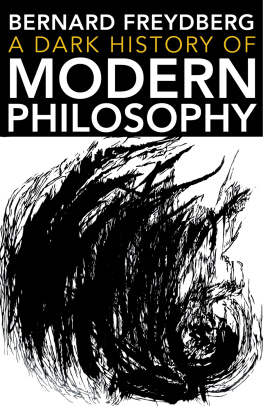
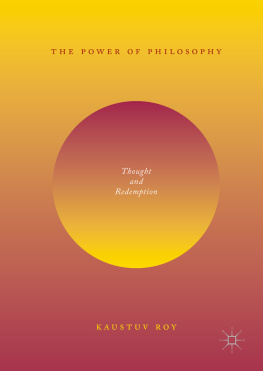





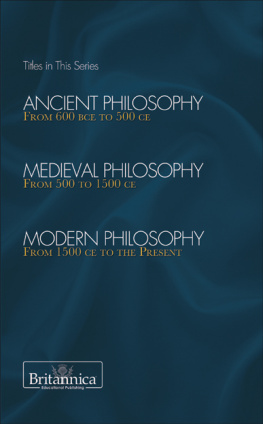
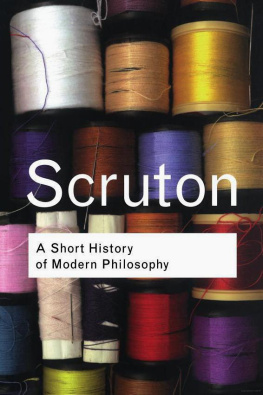
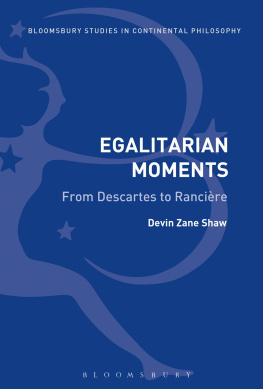
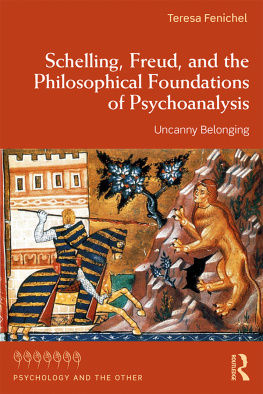
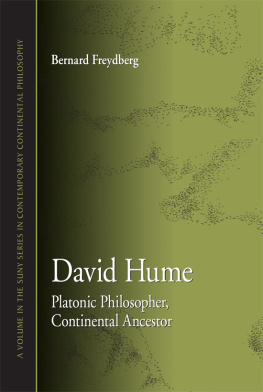
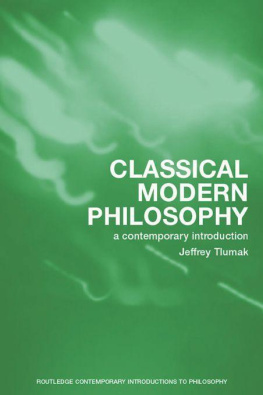

 The paper used in this publication meets the minimum requirements of the American National Standard for Information SciencesPermanence of Paper for Printed Library Materials, ANSI Z39.48-1992.
The paper used in this publication meets the minimum requirements of the American National Standard for Information SciencesPermanence of Paper for Printed Library Materials, ANSI Z39.48-1992.